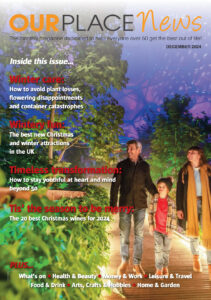Just 58% of over-55’s actively seek a better diet, compared with nearly 80% of 18 to 24- year-olds, according to a new poll.

They say wisdom comes with age – but a survey has found older people are less likely to switch to healthier eating.
Just 58% of over-55’s actively seek a better diet, compared with nearly 80% of 18 to 24-year-olds, according to a poll by the World Cancer Research Fund.
And the over-55’s are less likely to be aware of the links between a bad diet or high alcohol intake and an increased risk of cancer.
Research leader Dr Giota Mitrou said: “It’s particularly worrying the older generation is the least aware and least willing to change.
“As people live longer, we’re seeing an increase in cancer rates, but it’s possible to reduce your risk.”
It backed up the findings of the National Diet and Nutrition Survey last year that many older people are failing to get the nutrients they need to fight disease. But it’s never too late, claims nutritionist Dr Sarah Brewer, medical director of Healthspan.
She says: “What you eat now will have a direct effect on how your body copes with getting older, and could cut your risk of developing
cancer, heart disease and other serious illnesses.”
Here she shares easy changes people over 50 can make to their diets to fight disease and ensure a happier, healthier old age…
Cull white carbs
After 50, a diet higher in protein and lower in refined carbs – such as white bread and pasta – is the most effective at reducing obesity and the risk of serious illness.
One study published in the American Journal of Clinical Nutrition found that the waistlines of middle-aged people who ate high levels
of white carbs expanded three times more than those who ate wholemeal versions. This means simply swapping to wholemeal bread and pasta and brown rice.
Factor in more fibre
Your risk of type 2 diabetes increases after 50, but boosting fibre intake can help combat this. Fibre slows down the release of sugar into the bloodstream, which in turn helps control blood sugar levels. Fibre is also important for healthy digestion and lowering cholesterol, with plant foods such as beans, vegetables, fruits, nuts and whole grains among the best sources.
Government guidelines recommend that we eat around 30 g of fibre per day, but research shows that many people in this age group manage less than 15 g.
Eat more omega-3s
Oily fish such as salmon, mackerel and fresh tuna contain high levels of omega-3 fatty acids, which are linked to a lower risk of heart disease and memory loss. Aim to eat at least one portion a week.
Boost your antioxidant intake
Certain diseases, including heart disease, eye problems and cancer, become more likely in your 50s and beyond. So including plenty of protective antioxidants – found in colourful fruit and veg – is more important than ever. For maximum benefits, aim to eat a “rainbow” of at least five portions of different brightly coloured fruit and veg every day.
Drink moderately
Over half of over-50s drink more than the recommended 14 units per week, show figures from Drinkaware. High alcohol intake is linked to liver disease, high blood pressure , dementia and certain cancers. Try to have at least two days booze-free before building up to three or four dry days.
Avoid crash diets
Slashing food intake reduces important vitamins, minerals and other trace nutrients. Instead eat sensible portions to lose weight more slowly and think about taking a multivitamin supplement for over 50s.
Slash your salt intake
Too much salt can raise blood pressure, which can seriously increase your risk of heart attack or stroke. Cut added salt and check labels.
Get plenty of calcium
Women need to increase calcium sharply after 50, but men also need a good consumption of calcium-rich dairy foods and leafy vegetables to protect their bones.
(Story source: The Mirror)

